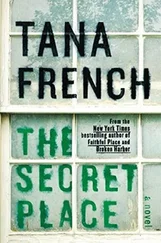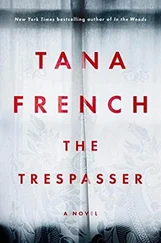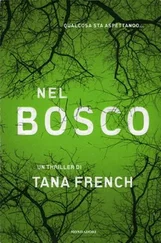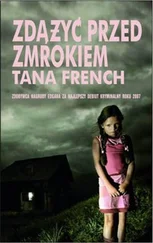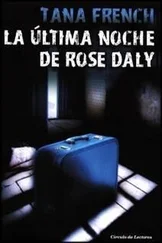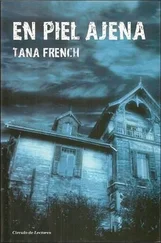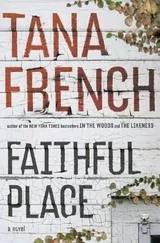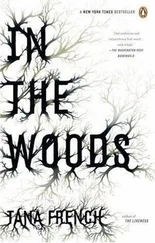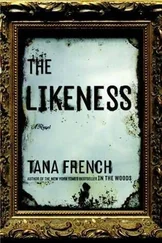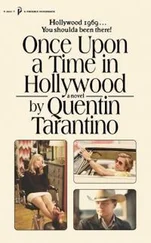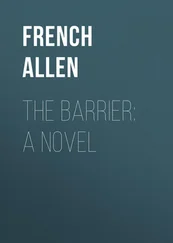“Yeah, she’s good. How about you? How’s the house going?”
“Getting there,” Cal says. He knows Alyssa doesn’t want to talk to him about Donna, but sometimes he can’t help it. “Slowly, but hey, I got time.”
“I got those pictures. The bathroom looks great.”
“Well. I wouldn’t go that far. But at least these days it doesn’t look like I’ve been holed up in there fighting off zombies.”
That gets Alyssa to laugh. Even as a little kid she had that great laugh, big and rich, an outdoors laugh. It makes Cal catch his breath.
“You should come visit,” he says. “It’s beautiful here. You’d like it.”
“Yeah, I bet. I should. Just, getting time off work, you know?”
“Yeah,” Cal says. And after a second: “Anyway, you should probably wait till I get the place in shape. Or at least till I have furniture.”
“Right,” Alyssa says. Cal can’t tell if he’s imagining the touch of relief in her voice. “Let me know.”
“Yeah, I will. Soon.”
Away across the fields, a tiny lit window extinguishes itself. The owl is still calling, cool and relentless. Cal wants to say something else, to keep her on the line a while longer, but he can’t think of anything to say.
“You should get some sleep,” Alyssa says. “What time even is it over there?”
When Cal hangs up he has the same empty feeling he always gets after talking to Alyssa these days, a sense that somehow, in spite of having been on the phone for all that time, they haven’t had a conversation at all; the whole thing was made of air and tumbleweed, nothing solid there. When she was a little kid she would trot along holding his hand and tell him everything, good and bad, it all poured straight from her heart to her mouth. He can’t remember when that changed.
The cloud of restlessness hasn’t cleared. Cal gets himself another beer and brings it back to the step. He wishes Alyssa would send him pictures of her apartment. He asked once, she said she would, and then she never did. He hopes this is because she never got around to it, rather than because her place is a shithole.
In the hedge at the bottom of the garden, a twig cracks.
“Kid,” Cal says wearily, raising his voice to carry across the grass. “Not tonight. Go home.”
After a pause, a fox steps delicately out of the hedge and stands staring at him, something small and limp hanging from its mouth, its unfathomable eyes glinting in the moonlight. Then it dismisses him as immaterial and trots off along its route.
FOUR
Two days later, the kid comes back. Since the day has brightened up after a rainy start, Cal and his desk are back out in the garden. He finished off the drawer runners last time, so he’s moving on to the nest of cubbyholes inside the drop front. The pieces of wood that make them up are delicate, dadoed together in an intricate jigsaw, and several of them are broken. Cal lays the desk on its back on a drop sheet and takes photos of the whole contraption on his phone before he carefully works the broken pieces free, loosening old glue with a scalpel blade, and starts measuring them for replacements.
He’s finishing up the first one, chiseling the last of the dado that will slot it snugly into place, when he hears twigs cracking. This time he doesn’t need to play any games. The kid pushes through the hedge and stands there watching, hands in the pockets of his hoodie.
“Morning,” Cal says.
The kid nods.
“Here,” Cal says, holding out the piece of wood and a sheet of sandpaper.
The kid comes over and takes them out of his hand without hesitation. He seems to have refiled Cal from Dangerous Unknown to Nonthreatening Known since they last saw each other, the way a dog will, based on some mysterious judgment process of his own. His jeans are damp to the shins from walking through wet grass.
“This part’s gonna be visible,” Cal says, “so we’re gonna be a little bit pickier about it. When you’ve finished with that sandpaper, I’ll give you a finer one.”
Trey examines the piece of wood he’s holding, then the splintered original on the table. Cal points to its gap among the cubbyholes. “Goes here.”
“Wrong color.”
“We’ll stain it to match. That comes later.”
Trey nods. He squats on the grass, a few feet from the drop sheet, and gets to work.
Cal starts penciling out the next piece of wood, positioning himself so he can look the kid over, in glances. The hoodie is clearly a hand-me-down, and one big toe is poking out through a hole in his sneaker. He’s poor. It’s more than that, though. Cal has seen plenty of kids poorer than this one who were ferociously well cared for, but nobody has been checking that this kid’s neck is scrubbed clean or patching his worn-out knees. He appears to get fed, more or less, but not a lot beyond that.
Leftover raindrops tick in the hedges; small birds hop and peck in the grass. Cal saws, measures, chisels out dadoes and grooves, and gives Trey the fine sandpaper when he’s done with the coarse one. He can feel the kid glancing at him, the same way he was glancing at the kid, assessing. He whistles softly to himself, here and there, but this time he doesn’t talk. It’s the kid’s turn.
He appears to have picked the wrong kid for that: Trey has no problem with silence. He finishes the shelf to his satisfaction, brings it over to Cal and holds it out.
“Good,” Cal says. “Have another. I’m gonna wax this one up here and here, see? and then fit it in where it belongs.”
Trey hovers for a minute or two, watching Cal rub wax along the dadoes, and then drifts back to his spot and starts sanding again. The rhythm has changed, though, got faster and less neat. The first shelf was to prove himself. Now that that’s done, there’s something else moving around in his mind, looking for an exit.
Cal ignores that. He kneels by the desk, lines up the shelf and starts gently hammer-tapping it into its grooves.
Trey says, behind him, “I heard you’re a cop.”
Cal nearly hammers his thumb. He’s been careful to keep that piece of information to himself, going off his experience with the people around his grandpa’s place in backwoods North Carolina, to whom being a cop as well as a stranger would not have been a big plus. He has no idea how anyone could have found out. “Who said that?”
Trey shrugs, sanding.
“Maybe next time don’t listen to them.”
“Are you?”
“I look like a cop to you?”
Trey surveys him, squinting against the light. Cal looks back. He knows the answer is no. That was one of the points of the beard, and the overgrown hair: no more looking like a cop, and no more feeling like a cop. More like Sasquatch, Donna would have said, grinning, twisting a lock around her finger to tug it.
“Nah,” Trey says.
“Well then.”
“You are, but.”
By now Cal has made up his mind: no point playing games if people already know. He considers a deal—you tell me where you heard, I’ll answer your questions—but he decides it wouldn’t fly. The kid is curious, but not enough to rat on his own. Deals need to wait a while longer. “Was,” he says. “Not any more.”
“Why not?”
“Retired.”
Trey examines him. “You’re not that old.”
“Thanks.”
The kid doesn’t smile. Apparently he doesn’t do sarcasm. “Why’d you retire, so?”
Cal goes back to the desk. “Things just got shittier. Or seems like.”
He wonders too late about cussing, but the kid doesn’t seem shocked, or even startled. He just waits.
“People got mad. Seemed like just about everyone was mad.”
“About what?”
Cal considers this, tapping at the corner of the shelf. “Black people got mad about being treated like crap. Bad cops got mad ’cause they were getting called on their shit all of a sudden. Good cops got mad ’cause they were the bad guys when they hadn’t done anything.”
Читать дальше

